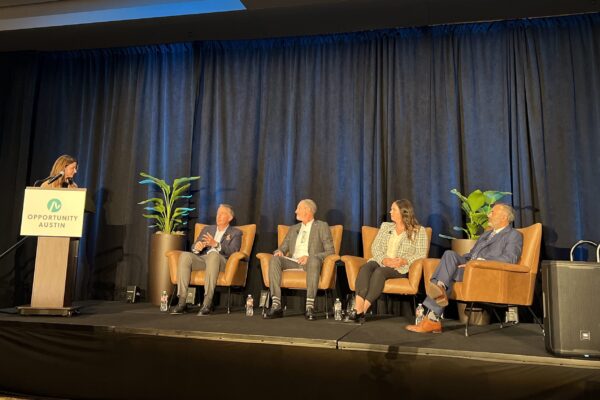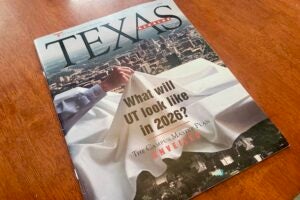AUSTIN, Texas — The University of Texas at Austin and Karlin Real Estate, a global real estate investment and development firm, are teaming up to launch UT Impact Labs at Parmer Austin, located near East Parmer Lane and Parmer Ridge Drive in north Austin. The 10,000-square-foot wet lab space is the first off-campus site for the University’s Discovery to Impact, which will manage the space for lease to life science startups.
“This is a great day for the University and Discovery to Impact,” said President Jay Hartzell. “As a world-class research university, UT Austin incubates ideas and discoveries, and brings them to life by enabling innovators to succeed in a global economy. Texas is poised to become the next major hub for the convergence of life sciences and technology, with Austin at the epicenter. I am thrilled that UT and Karlin can be at the forefront of this movement and make an enormous impact on the city and the world.”
Discovery to Impact brings research discoveries to the marketplace. Working with world-class inventors, investors, creators and entrepreneurs, the team launches startups and collaborates with established businesses to accelerate new products, services, solutions and cures.
“Karlin builds for a better tomorrow, empowering those at the forefront of innovation sciences to create spaces that set the standard and push the boundaries of what’s possible,” said Matt Schwab, co-founder of Karlin Real Estate. “I can’t think of a better partner in this work than The University of Texas at Austin and President Hartzell.”
In 2020, Karlin played an important role in the creation of a life sciences superhub in North Carolina’s Research Triangle Park called Parmer RTP. This site was anchored by Duke University’s Human Vaccine Institute and other major life science companies.
In Austin, Parmer Austin will provide laboratory and office space, giving clients the opportunity to lease institutional-quality space within one of the most coveted, rapidly growing regions in the country. This will accelerate innovation through a concentration of businesses, research institutions, incubators and accelerators in a vibrant, mixed-use environment.
“Opportunity Austin is targeting the high-priority life sciences industry by tailoring recruitment strategies and effectively utilizing new federal investments and incentives,” said Gary Farmer, chairman and interim CEO of Opportunity Austin. “For our efforts to be effective, though, we need space. Historically, our ability to sustain a thriving life sciences cluster has been impacted by the availability and affordability of leasable lab space for innovators. Through partnerships with industry innovators like UT and Karlin, we will transform this region into a thriving, globally competitive life sciences superhub.”




